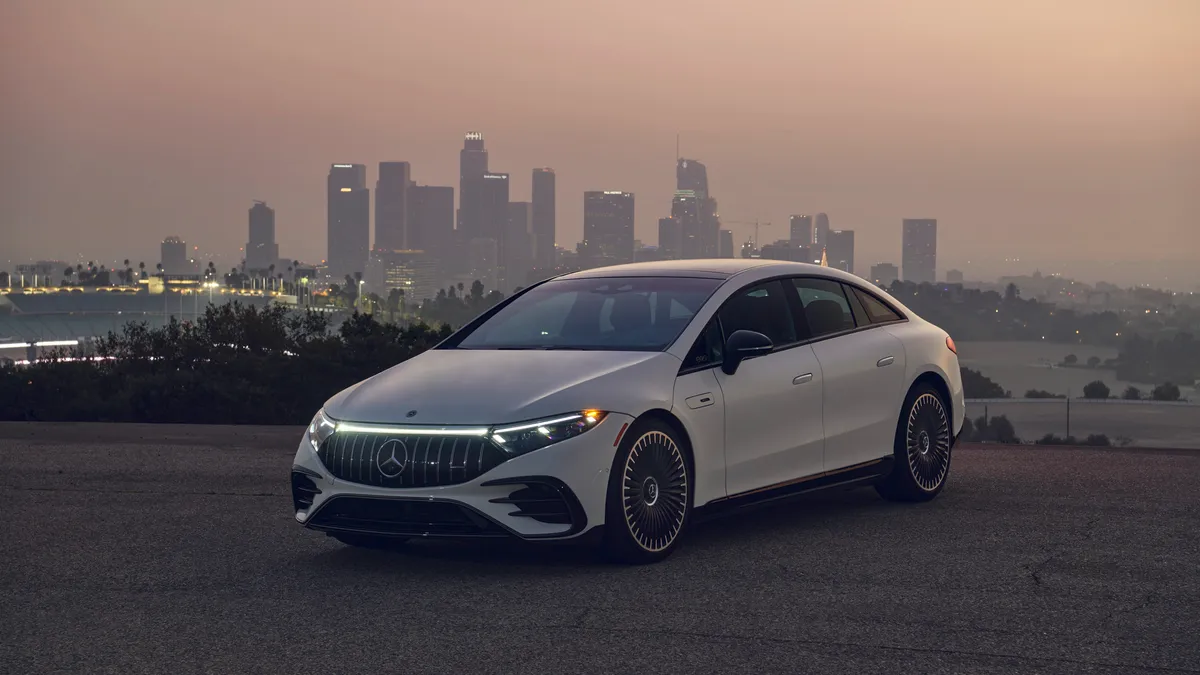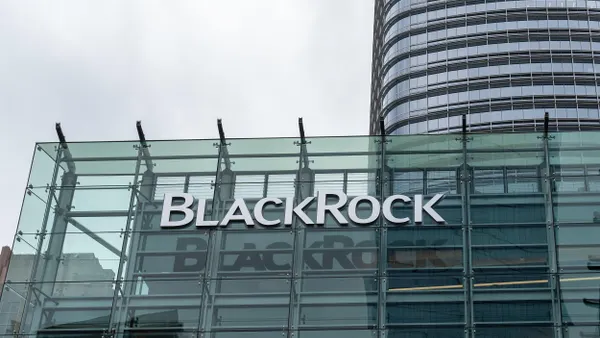Dive Brief:
- The Mercedes-Benz Group plans for electric vehicles to comprise 50% of its sales by 2030, the automaker announced Feb. 21 when it reported four-quarter and full-year earnings for 2023.
- The automaker had planned for EVs to account for half its sales by 2025 but reversed course amid slowing demand.
- Going forward, Mercedes-Benz will adjust production based on market conditions for internal-combustion-engine vehicles, hybrids and EVs.
Dive Insight:
Several legacy automakers, including Ford Motor Co., General Motors and Toyota Motor Corp., have reined in their electrification plans since EV demand began to wane in 2023, with many turning to hybrids to meet stricter emissions requirements and consumer demand.
Meanwhile, startups like Rivian without traditional ICE or hybrid vehicles to fall back on have begun to temper expectations by lowering their production and earnings forecasts as EV prices fall and market uncertainty continues.
Mercedes-Benz slowed its electrification ambitions, in part, because the market for low-cost EVs is growing faster than demand for more expensive luxury models, largely due to policies in China, said Ola Källenius, chair of Mercedes-Benz Group’s board of management, during the company’s earnings call with analysts Feb. 22.
The automaker still plans to introduce several EVs based on its forthcoming Mercedes-Benz Modular Architecture, starting with an all-electric CLA sedan in 2025. In addition, the automaker plans to introduce a hybrid powertrain in 2026 that uses an all-new, four-cycle engine, Källenius said.
Offering multiple powertrains should allow Mercedes-Benz to meet consumer demand, regardless of whether they favor EVs, hybrids or ICE vehicles, Källenius said. However, the automaker did not set “artificial” market share targets for ICE vehicles or EVs because it wants to maximize profitability, not sales volume.
Mercedes-Benz sold about 402,000 plug-in hybrids and EVs worldwide in 2023, a 20.7% year-over-year increase













